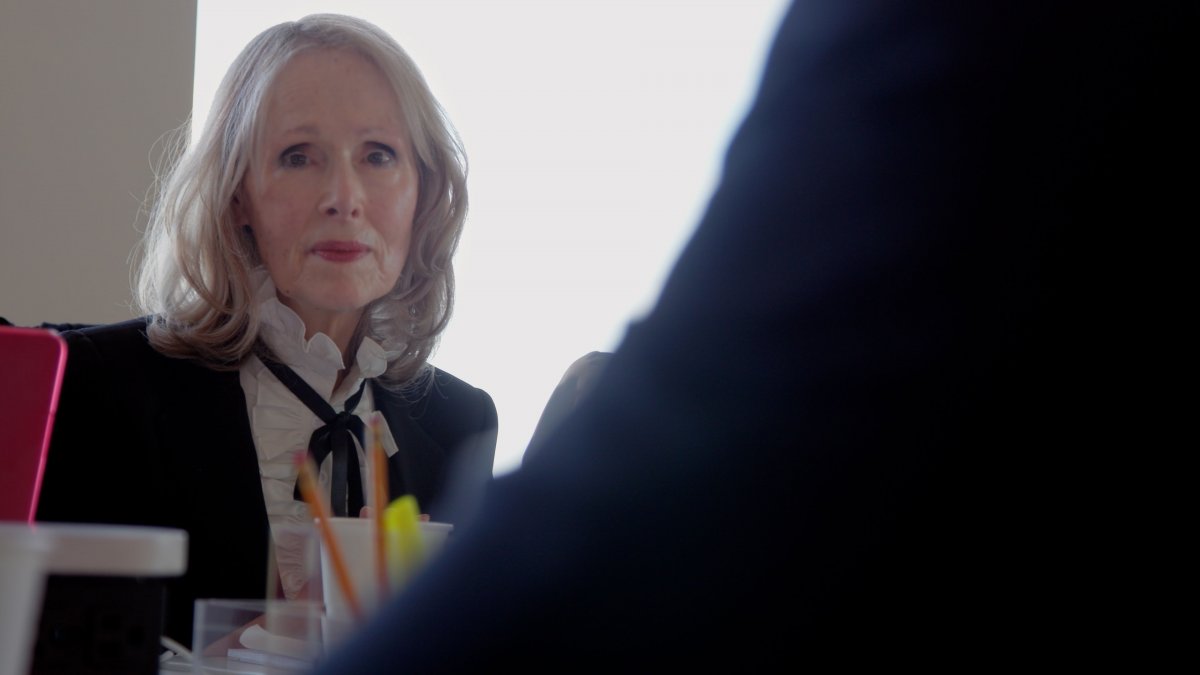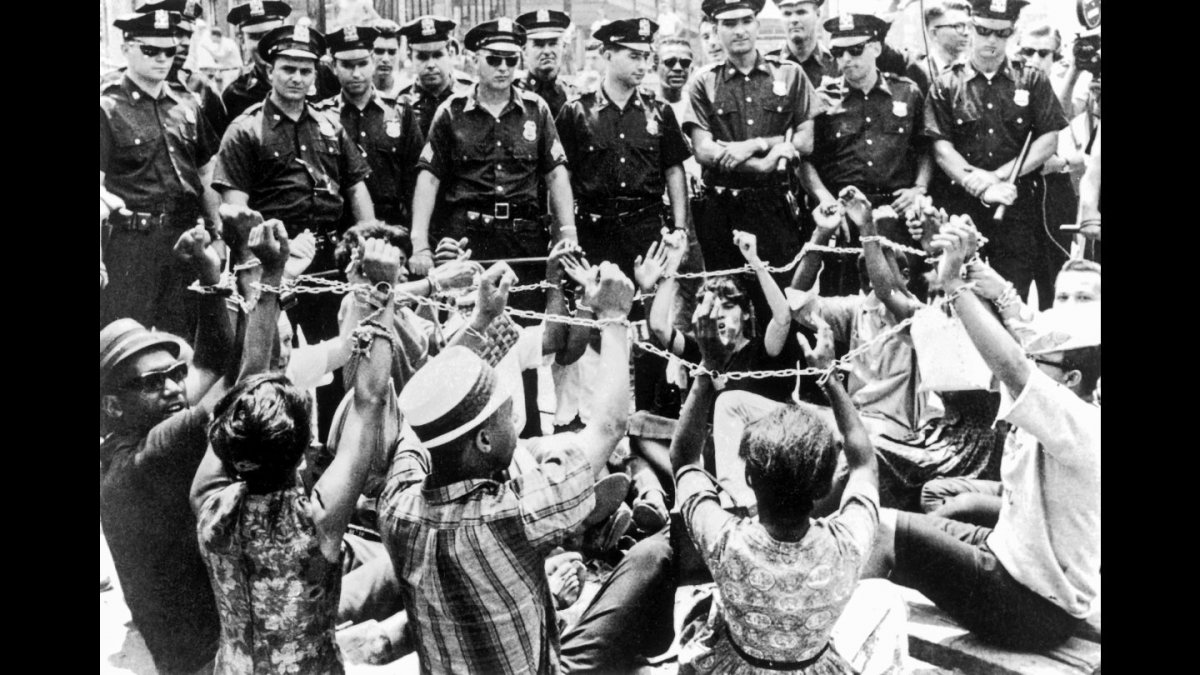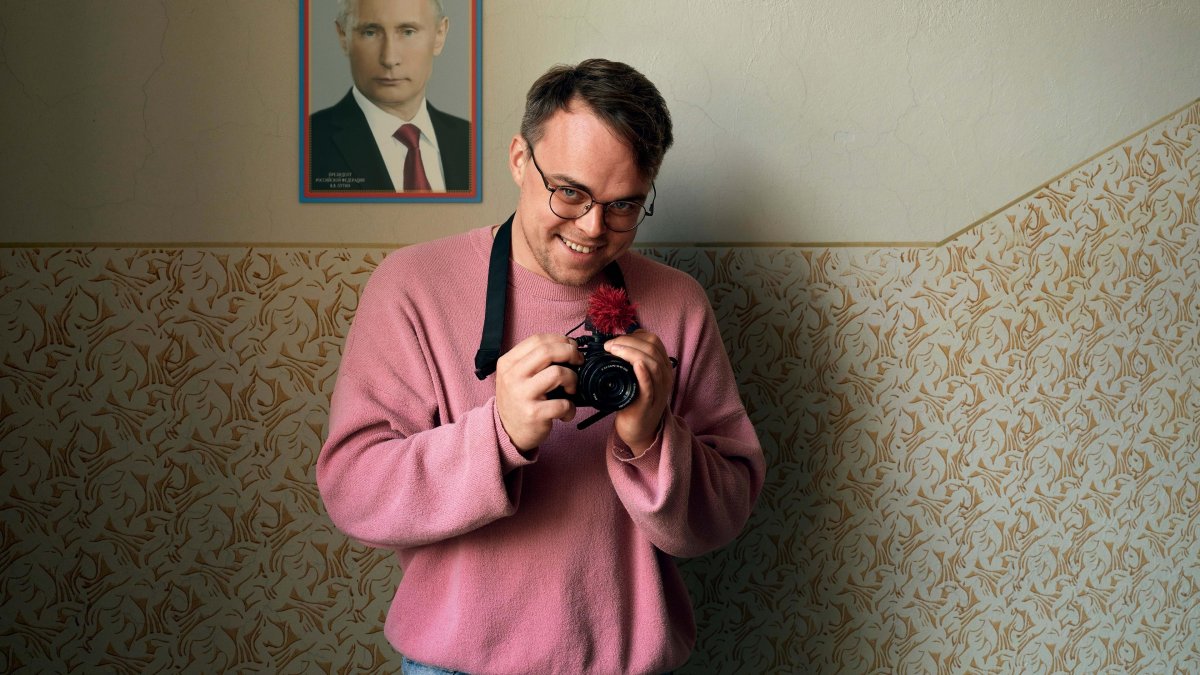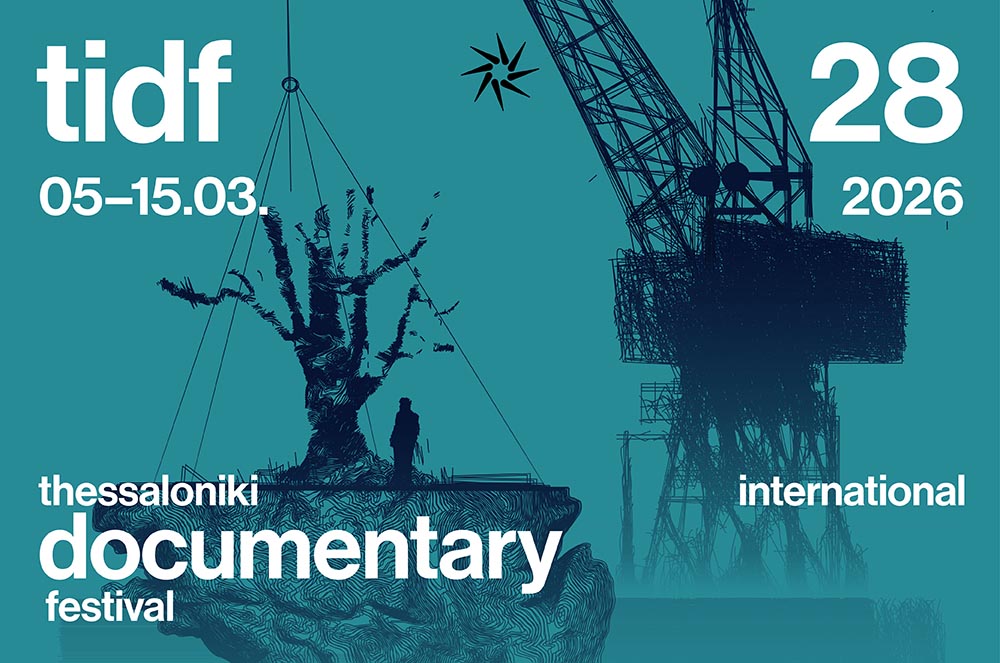Within the framework of the TIFF66, the remarkable Greek filmmaker, Yorgos Tsemberopoulos, delivered an exciting masterclass, titled “The Director in the Role of the Midwife,” on Saturday, November 8th, at the Pavlos Zannas theater. This year, the Festival held a large-scale tribute to Yorgos Tsemberopoulos and awarded him the honorary Golden Alexander. The acclaimed director was welcomed and prefaced by the Festival’s Artistic Director, Orestis Andreadakis: “We watched the short films he made as a student in Los Angeles, all his feature films, and the one in which he starred, and we honored him with a Golden Alexander Award for his overall contribution to cinema. Today, he is here with us to deliver a masterclass, which I believe will be of great interest." The discussion was moderated by Eleni Androutsopoulou, Head of the Greek Film Festival. "We have spent a week watching Yorgos Tsemberopoulos’ work, but we still haven't learned all his secrets. He is one of the few directors in Greece who has managed to bring commercial dimensions to arthouse cinema. In other words, he creates films with directorial sensitivity that also sell a lot of tickets. He is a director who invests in his actors, both professional and non-professional, so as to create a new family in each of his films.”
For his part, Yorgos Tsemberopoulos expressed he feels nervous now that he is standing before the audience as a speaker and not as a filmmaker. “Now I am called upon to charm you myself, rather than with a film of mine. I will not give you instructions, nor will I refer to any particular method. I will talk to you about my own way, which I discovered through experience.” At that point, he mentioned his two close friends, Giorgos Panousopoulos and Nikos Perakis, mentioning that both have made very good films but with a completely different approach. During the masterclass, Yorgos Tsemberopoulos showcased a series of clips, delving into the skills he has acquired throughout his professional career.
The discussion began with Yorgos Tsemberopoulos’ first film, specifically the documentary Megara (1974), which he do-directed with Sakis Maniatis. “During the Junta, we couldn't speak freely. Yet, there was motivation. The film had to be made at all costs. With the help of a journalist, I reached out to old Panagis. I was lucky: the man was a godsend. I was afraid that what he had told us off camera he would not repeat, or at least not in the same way, but in the end, I was proven wrong. In a documentary, you have to find people who want to talk, who can talk, and have a certain charm. They should be people of all genders, all ages, and, as far as possible, have different opinions on the subject you are exploring. Whatever you're filming, keep in mind that at some point it will be shown, that there is a chance that something big will happen and it will be shown on the big screen. What applies to both fiction and documentaries is that casting always starts with the script. In casting, as well as in the later stages of production, you have to preserve that initial feel of the script.”
Then, the discussion shifted to Sudden Love (1984), the director's first feature fiction film in Greece. “Even when I was writing the script, I had Betty Livanou in mind for the lead role. She was a well-known actress at the time, an icon, and she happened to be a friend of mine. I set out to impress her. In the end, she agreed to participate in the film. At the time, I was unknown, and her name helped us secure significant funding. We therefore had to find a male co-star who was her equal. From the very beginning, I had Antonis Theodorakopoulos in mind, but no one believed he would leave the Art Theater Karolos Koun. In the end, we made it. We did some tests with a camera, and at first Antonis was very tense. I then did something we normally never do with actors: I showed him the unedited footage. Fortunately, in his case, it worked and allowed him to let go.”
Then, excerpts from the film Take Care (1991) were showcased. “Kostas Koklas was a gift to me from Alkis Kourkoulos, as he was his friend from school. Something I realized for the first time in this film is that I would never cast an actor unless I cast them all together. It's kind of like when you create a theater troupe. I started intensive, improvisational rehearsals, and that's when I realized how much one can gain from this process. How generous actors become when you give yourself to them. We rehearsed for months. I returned to the script with new lines. I rarely mess with the structure, but I like to mess with the details. Of course, there are also the skills your actors need to have. It's an art form.”
Reflecting on Back Door (2000), Yorgos Tsemberopoulos noted that it was a chaotic experience because “so many different people had to coexist, including the lead actor, who was an amateur. There is a story that I think is worth sharing. At first, I was intrigued by another boy who was perfectly suited for the role, but he was so nervous that he broke out in hives and couldn't play in the film. You have to take these things into account as well,” he explained. Mr. Tsemberopoulos pointed out that he had already found his own approach as early as Take Care, mainly through improvisational rehearsals. “In addition, during those shoots, I discovered something that I have been coming back to ever since: no matter what happens, there is always the script," he emphasized. He also spoke about another practice he found useful, mentioning that in films it helps to sometimes place photos of the actors side by side and see how they fit together. “Personally, when I observe actors, I see them through the frame; I don't trust my eyes,” he added.
As for The Enemy Within (2013), the director disclosed that “If it weren’t for Manolis Mavromatakis, we would have had a different film. It was a risky choice, and in fact the funders didn't believe they could invest in an actor who was unknown at the time and didn't have the stereotypical machismo that the role required. We made the film with very little money, and we really wouldn't have succeeded without the support of our production.”
Of course, the masterclass couldn’t have concluded without a reference to the director’s most recent work, Stelios (2024). “If we hadn’t found Christos Mastoras, the film wouldn’t have been made. At least, not with me as the director. Stelios Kazantzidis lived with passion, and we had to find the person who would dare embody him. He was the right age, he could sing, and he embraced my methods. He came to rehearsals and worked tirelessly. There is this scene in the nightclub, which was shot in the summer and the actors worked without air conditioning, wearing these heavy costumes. And yet, they did it. That's the magic of cinema. For my part, I think it's unacceptable to have convinced so many people to participate in a film, only to arrive on set and find the actors unprepared. I believe they should be ready for every unforeseen circumstance. Nothing should be left for later. Be demanding with your actors. The truth is that I ask too much of them, and they give me their soul. This is only possible if you yourself believe wholeheartedly in your script.”
The discussion concluded with a Q&A, during which Yorgos Tsemberopoulos placed emphasis on the methods he employs to solidify his relationship with actors and establish a sense of closeness between them. “Directing doesn't just happen during filming. It's all the preparation beforehand and the effort to elicit from your actors the elements of the character they will play in your film using whatever method proves effective. I always have a casting director on my films and I always make sure I have a space available specifically for rehearsals. The topics I discuss with my actors are exclusively those that my instinct tells me are relevant to the role they play in the film. And above all, you must have studied it yourself.”
Finally, Yorgos Tsemberopoulos added that “Perhaps the most difficult part of the filmmaking process is what comes after the screening, because films are not financed properly and you end up relying on everyone around you. You are looking at a director who has managed to create successful films, most of which have done well at the box office, yet it is not even remotely possible for me to make a living from my films. On the reasons why he makes films, he said: “What compels me to create films is emotion, and emotion is not just tears, it is also anger and all other feelings. Dare to say no, beware of half-hearted attempts. Ask for more time. Be confident in your casting choices.” Referring to the tribute to his work and the Honorary Golden Alexander awarded to him by the 66th Thessaloniki International Film Festival, Yorgos Tsemberopoulos noted: “This week has been important for me. I feel renewed. Through your eyes, through your applause, I’ve felt that my life has been worthwhile.”















